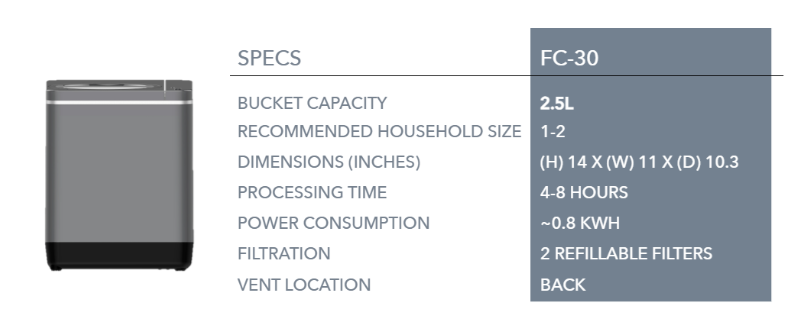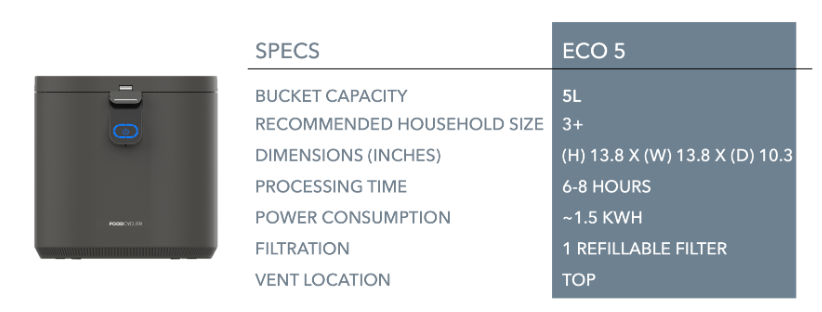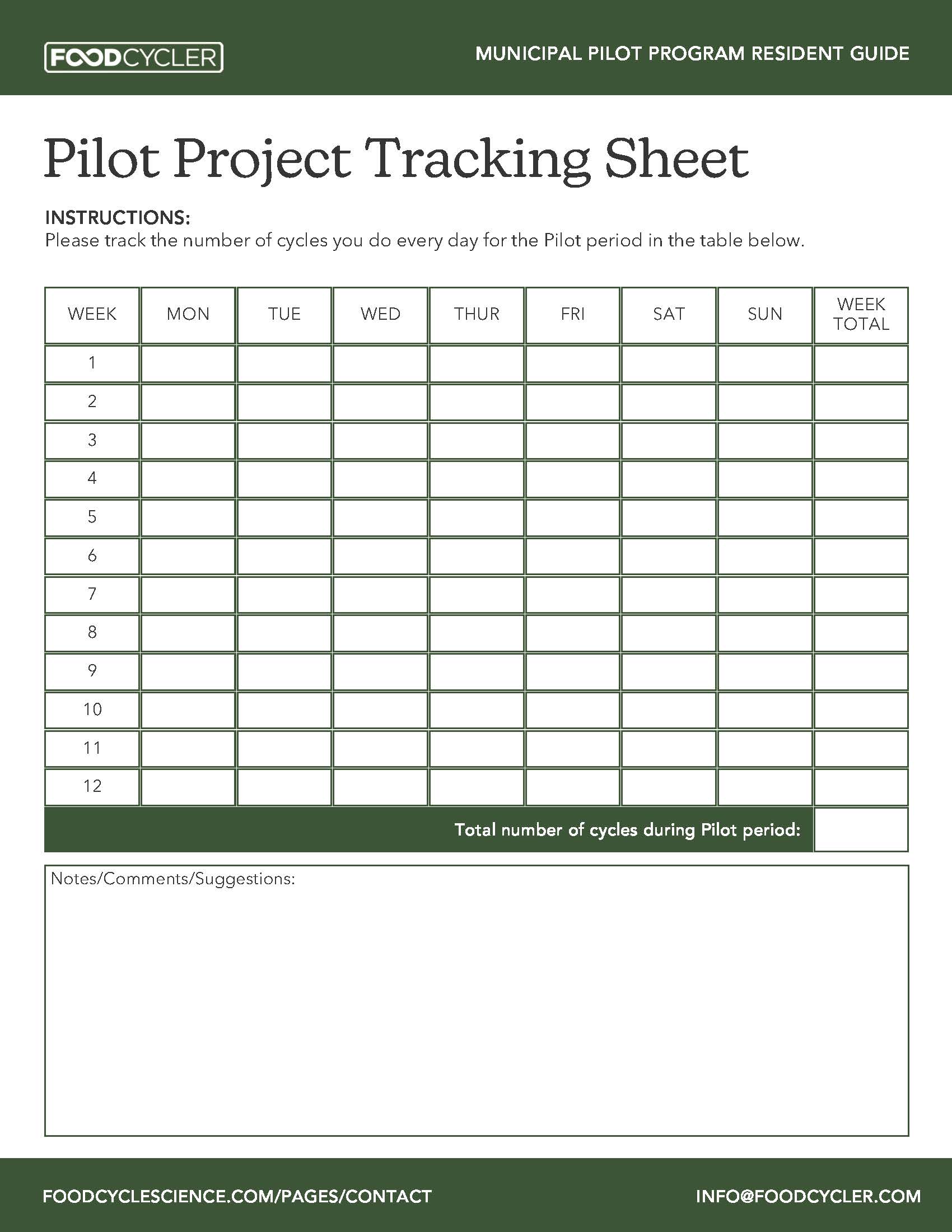What is a FoodCycler?
The FoodCycler™ is a closed-loop indoor compost alternative that speeds up the natural decomposition process through aerobic digestion of waste. The unit dries and grinds food waste into a dry, odorless nutrient-rich by-product that is significantly reduced in weight and volume from its unprocessed state. The product is free from bacteria, weed seeds, and food-borne pathogens that were eliminated during the process. You can learn more on the FoodCycler website.
How does the FoodCycler countertop composting process work?
The FoodCycler speeds up the compost process through its revolutionary low-sound and low-odour grinding technology. The Vortech™ grinding system pulverizes meat, bones, pits, shells, and other food scraps. Over the course of 4-9 hours, the composter will break down food waste into a nutrient-rich soil amendment.
The FoodCycler works its magic through three stages:
- Drying: It heats up to 140 degrees Celsius (284 degrees Fahrenheit), which destroys over 99% of bacteria and reduces food waste volume by up to 90% by removing excess moisture.
- Grinding: With its powerful rotary mechanism and blades, it transforms your food waste into small particles, ready for their future use as soil amendment.
- Cooling: Finally, it cools the resulting soil amendment product down, making it safe to handle and use.
You can read more about the science behind the FoodCycler unit on their blog.
How much electricity would a FoodCycler use?
Each cycle consumes approximately 0.8-1.5 kWh per cycle, which is roughly equivalent to having a desktop computer running for the same amount of time as the cycle. Depending on where you live, each cycle should not cost you more than a couple of cents.
The FoodCycler has built-in sensor technology that monitors the dryness and humidity of the food waste. Once complete, the unit will stop the cycle automatically.
How long does the FoodCycler process last?
In the Maestro / Eco 5™ FoodCycler®, a typical cycle takes between 4-9 hours for the food waste to become completely dehydrated and processed into the by-product
For the FC-30 units 4-8 hours (with an average of 5 hours) for the food waste to become completely dehydrated and processed.
The time needed depends on the amount of food waste being processed, the density of the food wastes and the moisture levels contained in each. Please note that these estimates exclude the unit's cooling time which lasts less than a half hour on average.




